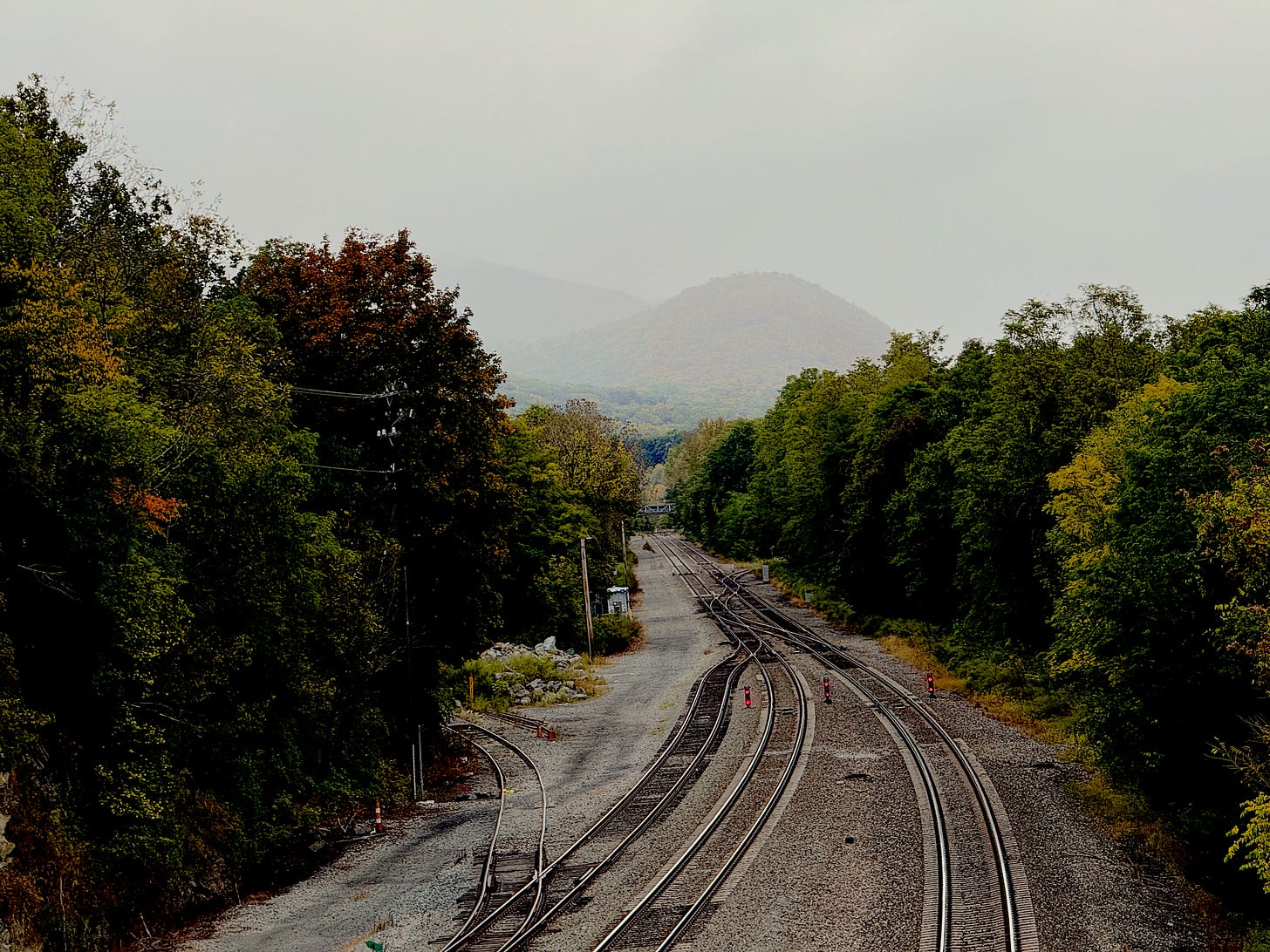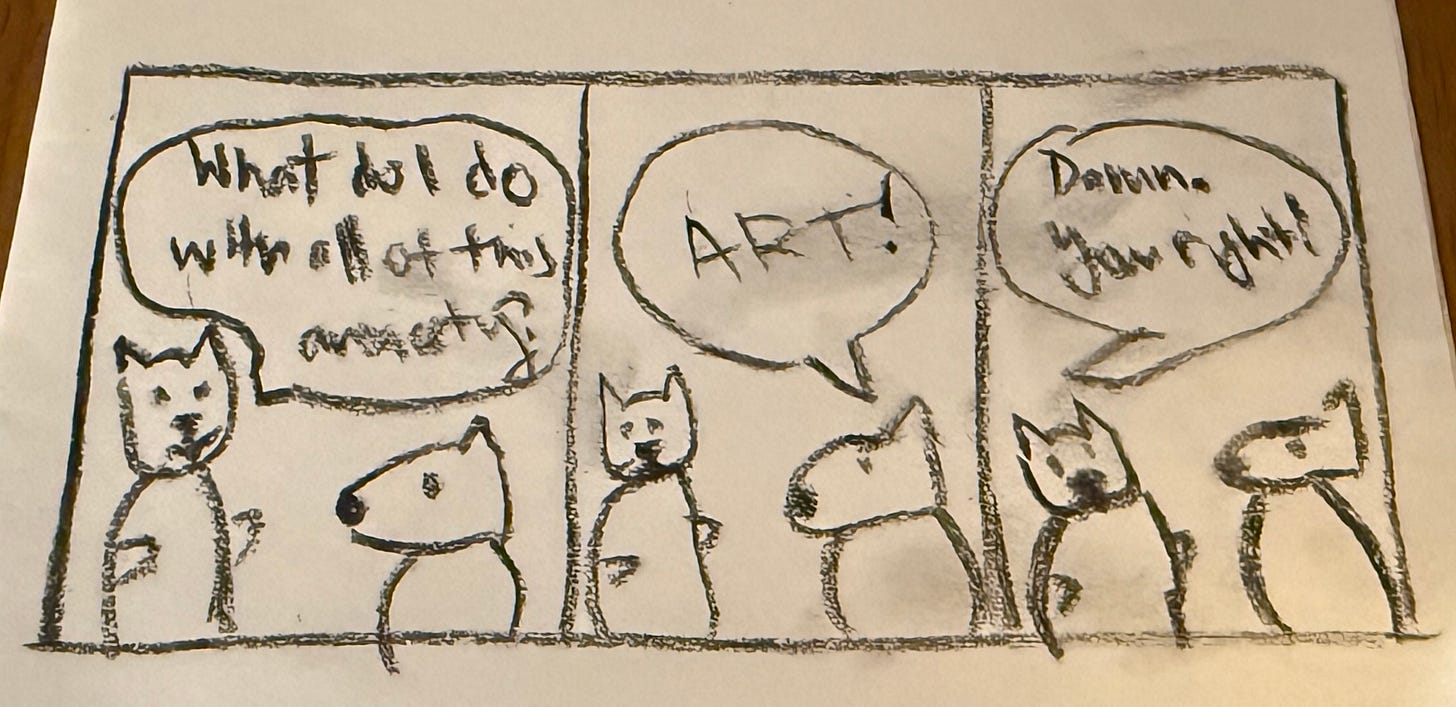against hopelessness
through creativity
I must admit, I’ve been feeling hopeless lately. Despite the wealth of gifts in my life, I find myself losing hours of my life trying to analyze the news, expecting the latest atrocity from the American government, or the latest prognostication of an economic crash. I don’t know why I find myself so obsessed with keeping up with the news lately. It’s like watching a car crash — you can’t look away. When did I develop this dark fascination with finding everything that could possibly be going wrong? When did I become a person who reads The Financial Times?
The news is bleak. Even during the darkest times of the COVID-19 pandemic, there was this constant feeling of hope that we would one day get vaccinated, be free of our restrictions and live in a world like what we had once known. These days, it’s nearly impossible to predict what tomorrow will look like, or any day after that. Even if I know that an economic crisis is around the corner, even if I donate to all of the right causes, or volunteer in my community, what can one really do about the current state of things? What can I do about the AI bubble, about the affordability crisis? What are these hands even capable of?
So I think about my hands. I think about what they’ve wrought. In the midst of all of this anxiety, I’ve been feeling a deep desire to create, in a way I haven’t felt in years. I think about the last Trump administration, the last time I found myself consistently distraught by the news. In college, I was always being creative in some way — whether it was newsletters or illustrations or photos or posters or my latest portfolio iteration. I started my newsletter during that time (eight years ago!) because I realized that creating consistently was a great way to maintain my sanity.
I seemed so creative back then, even among coursework, among perpetual internship searches, among the confusing nature of the world’s events. I wonder where that creative power went — whether it was a unique feature of being 19 and invincible. But I know what has changed. I know that most of my mind and creative energy has been dedicated to being overwhelmed by an onslaught of information: short-form video, short-form text. Social networks that once felt like two-way flows of communication have become firehoses, precluding any sort of real thought.
With six-plus hours of screen time, what can I expect? Even if I spend that time reading The Financial Times or other economic analyses, I’m still overwhelming my senses at all times. It’s unsurprising that I often can barely find the energy to do anything other than constantly scroll.
In the face of this negativity, this hopelessness, and this frustration, I was shaken by the most unexpected thing. I received a routine email from a dumb website. Goodreads.com, the website dedicated to tracking your reading, sent me an email asking about my progress in my yearly reading goal. At the time, I had read fifteen books, which paled in comparison to the twenty-nine books I read last year. The idea of being surpassed by my older self, of regressing into a worse version of myself, of reading fewer than twenty books disgusted me. I had once read fifty books in a single year — I could not let myself read around fifteen books in a year. I had worked so hard to return to my reading habit after years of reading no books that anything less than some sort of progress felt like a failure.
And suddenly, after weeks of feeling directionless and lost in a sea of negativity, I found a new focus. I decided that I would read thirty books by the end of 2025. I downloaded apps to block websites and apps, and started to place holds at the library that could enable a greater focus on reading. My commutes were now for books, my nights and mornings were for reading, and time on my phone competed with my larger purpose.
These changes worked. Last week, I read four books — a quarter of what I achieved in the four months prior. I flew through Perfection by Vincenzo Latronico (amazing!), found solace in Keep Going by Austin Kleon (necessary and wholesome), obsessed over The Maniac by Benjamin Labatut (absolutely incredible!), and finally read Things Become Other Things by Craig Mod. I felt invigorated — on the days that I read a lot, my mind was clearer and calmer, and I vibrated with creative energy. On other days, I would forget about my books and continue to scroll in the same ways that I used to, still getting used to these different habits.
Through this new means of consumption, deeply steeped in longer-form media, I was changed — I found myself feeling more creative. I was more productive at work, I explored more ideas for a portfolio concept, I wrote more poetry, and I even ended up drawing a silly comic.
All of this made me feel something different — relief from the overwhelming anxiety that I’d been soaking in for weeks, but also a rare feeling of agency. Sure, there was an immense number of insane, newsworthy things occurring, but the consumption and expression of real, human creativity felt like a step in the right direction — toward a type of non-algorithmic existence that could make my everyday life more livable. I’m reminded of an inspiring speech by a person who doesn’t deserve to be credited:
Life is sometimes hard. Things go wrong, in life and in love and in business and in friendship and in health and in all the other ways that life can go wrong. And when things get tough, this is what you should do.
Make good art.
If nothing else, we should consume good art. We should make good art. And we shouldn’t let ourselves lose hope. This is all we have.
💧 Drops of the Week 💧
PLAYLIST - “Luis Miguel = City Pop ??” - Japan is everywhere with those with eyes to see it.
POEM - “Sea Calm” by Langston Hughes - How strangely still / The water is today.




sometimes it's the little things that help us feel grounded in a world that moves too fast for our comprehension. happy reading!
I love the practical examples! I've also leaned on reading (fiction!) to help combat the anxiety/hopelessness that seems to be persistent in this time we find ourselves in